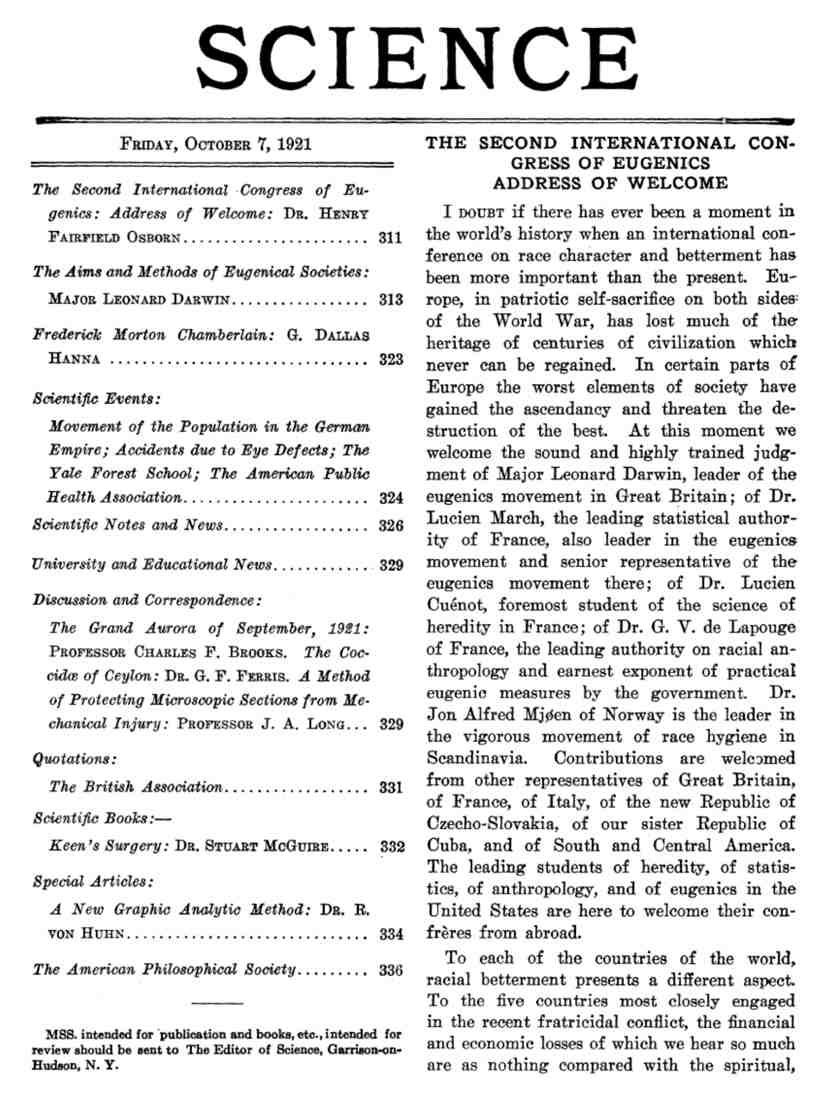Aggregated News

A century ago this week, 300 scientists, policy-makers, and campaigners gathered at the American Museum of Natural History in New York to discuss their work about heredity and eugenics—the political ideology designed to sculpt societies through biological methods of population control (the meeting was highlighted in Science a week later). The aims of eugenics were to nurture the propagation of people deemed “desirable” and to reduce the number of “undesirable” or “defective” people, primarily through enforced sterilization. Although recognized as toxic now, back then, eugenics enjoyed popular and bipartisan support and would grow to be one of the defining ideas of the 20th century.
The meeting had been coordinated by the Eugenics Record Office at Cold Spring Harbor Laboratory in New York, founded by the prominent eugenicist Charles Davenport, and by the office’s director, the equally zealous Harry Laughlin. Laughlin was the author of a “Model Eugenical Sterilization Law” to standardize state legislation to prevent people with “undesirable” characteristics from having babies. It would eventually be translated and adopted by the Third Reich. The conference treasurer was Madison Grant...



